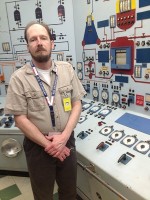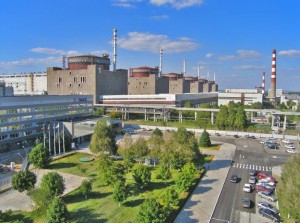The trouble-if it should be called that-related to this incident began when the Ukrainian Premier publicly referred to this event as an "accident." The term "nuclear accident," still burned into the minds of so many after Chernobyl and Fukushima, refers to a very serious event. Such an event compromises all the layered, defense-in-depth levels of safety protecting nuclear materials from reaching the environment. In the case of a nuclear plant it would normally be assumed to involve melting of the fuel.
In the case of the Ukrainian nuclear power plant, Zaporizhia Unit 3, no such event occurred and was never approached; not only did the units beside it continue generating power, the immediate fault (related to a power transformer) was identified and within hours was scheduled for immediate repair. The unit was announced as ready to be back on the grid Friday, December 5.
After the Prime Minister used the "nuclear accident" phrase, a shock wave of reporting went around the world so that by 8 am CT Thursday morning, American Nuclear Society headquarters had already been contacted by major media for comment on the situation. It was clear, quite early, that what had actually happened was essentially a non-event (and the official Zaporizhia NPP site, in Russian only, had announced this fact on the November 29.) Headlines such as that seen here continued after the fact to use the term "accident," even though nothing that satisfies the use of that term related to nuclear energy had happened.
It led to a roller coaster effect for some bond markets, and according to energy analyst Glenn Williams, "it's actually dangerous. Some people lost money, although the (bond) markets that got hit recovered." Bloomberg reported on the shakeup of the Ukrainian bond market yesterday. Williams noted that "if one unit at a giant six-unit power plant like that can go down and do that to their markets, it essentially demonstrates that Ukraine has an energy security problem." That might be the real news from this event; we shall wait to see.
What's essential to understand here is the significance of misreporting events such as these "incidents" (unintended, but fairly routine events) as "accidents." Clearly there is a desire for news outlets to get views and clicks, and the use of the word "accident" will encourage that. Unfortunately, it seems that this desire overrode any attempt by many to get the actual facts. "Drudge had the report with the word 'accident' up for quite some time, and AP pushed that word too, but later had to back off from it," said Williams. Numerous sources worldwide, in fact, carried this same verbiage.
What matters is that a routine event-an equipment failure that causes a power plant of any sort whatsoever to take automatic protective action-got mislabeled by a public official, and then vast media sources parroted that report without any further facts.
At least one silver lining was found, though-one media source did contact ANS for expert information and apparently killed the story when it was found to be a non-event.
•ENERGOATOM, operator of Zaporizhia NPP, press release
•IAEA press release on the event
____________________________________
 Will Davis is the Communications Director for the N/S Savannah Association, Inc. where he also serves as historian, newsletter editor and member of the board of directors. Davis has recently been engaged by the Global America Business Institute as a consultant. He is also a consultant to, and writer for, the American Nuclear Society; an active ANS member, he is serving on the ANS Communications Committee 2013-2016. In addition, he is a contributing author for Fuel Cycle Week, and writes his own popular blog Atomic Power Review. Davis is a former US Navy reactor operator, qualified on S8G and S5W plants.
Will Davis is the Communications Director for the N/S Savannah Association, Inc. where he also serves as historian, newsletter editor and member of the board of directors. Davis has recently been engaged by the Global America Business Institute as a consultant. He is also a consultant to, and writer for, the American Nuclear Society; an active ANS member, he is serving on the ANS Communications Committee 2013-2016. In addition, he is a contributing author for Fuel Cycle Week, and writes his own popular blog Atomic Power Review. Davis is a former US Navy reactor operator, qualified on S8G and S5W plants.



